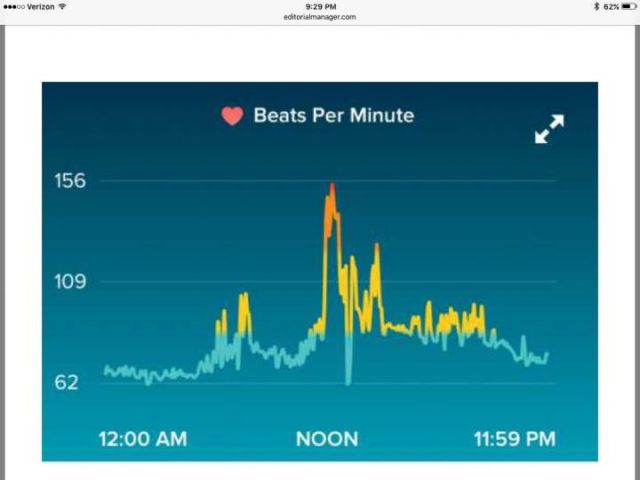ER docs get heart rate info from Fitbit, save patient’s life
Ars Technica » Scientific Method 2016-04-12

(credit: ALFRED SACCHETTI, MD)
One man's Fitbit device proved to be much more than a smart pedometer. After a 42-year old New Jersey man suffered a seizure at work one day, emergency room doctors used his Fitbit Charge HR to understand his heart rate history and decide how they could best treat him.
Upon arrival at Our Lady of Lourdes Medical Center in Camden, doctors noticed that the man had an atrial fibrillation, or an irregular, fast heartbeat. However, they weren't sure if it was a chronic condition or if it was caused by the seizure itself. Knowing this detail would determine how the doctors could treat the patient: If the arrhythmia was caused by the seizure, they could electrically cardiovert the patient to alleviate it. If it was chronic, the cardioversion could potentially cause a stroke. A stroke could also occur if the arrhythmia was left untreated.
That's where the man's Fitbit Charge HR came in. The doctors accessed the Fitbit app on his smartphone and found his average heart rate as recorded throughout the course of his fitness program. "[It] revealed a baseline pulse rate between 70 and 80 beats/min, with an immediate persistent increase to a range of 140 to 160 bpm at the approximate time of the patient’s seizure. The pulse rate remained elevated until administration of the diltiazem in the field," researchers wrote in the report that now appears in the Annals of Emergency Medicine.